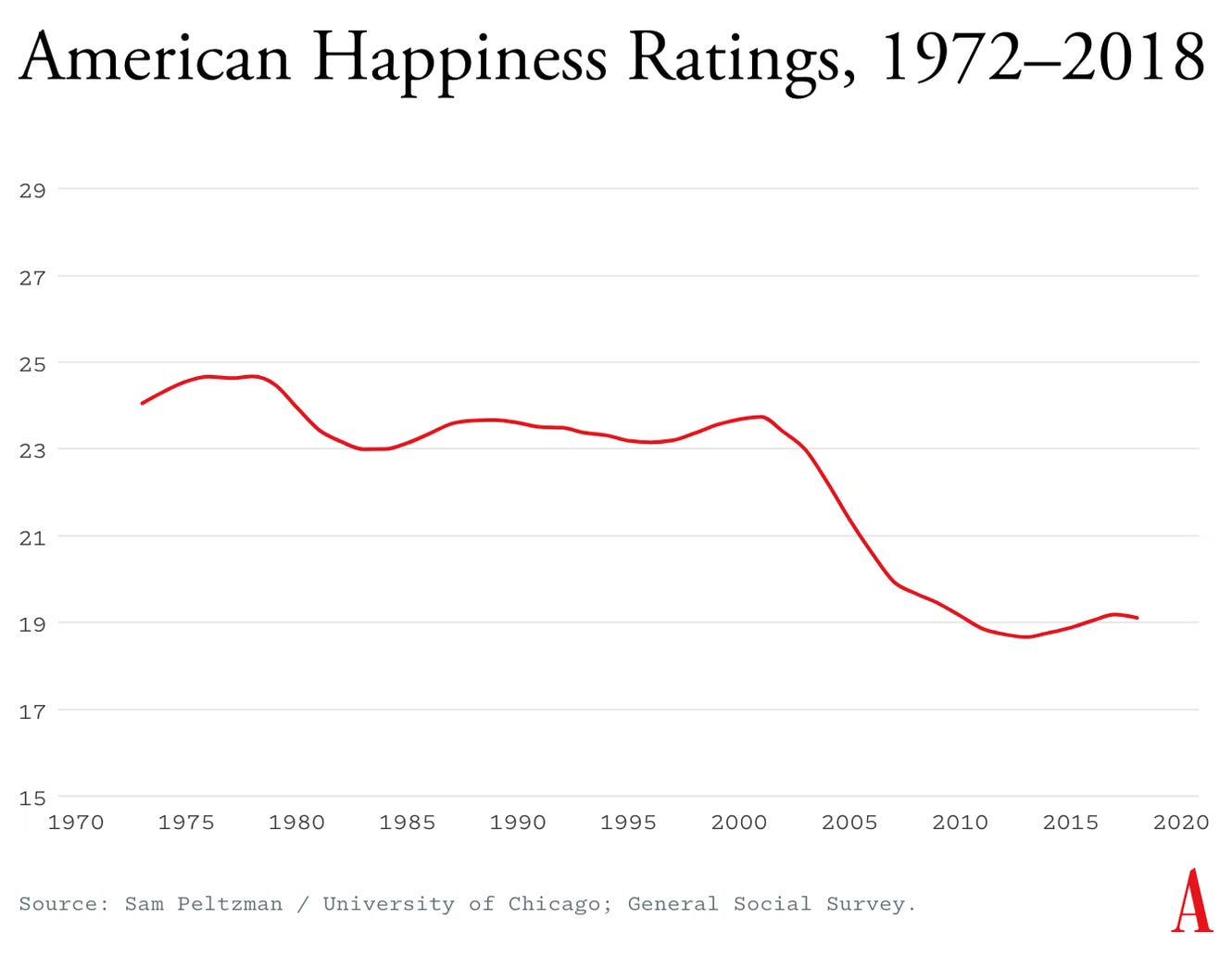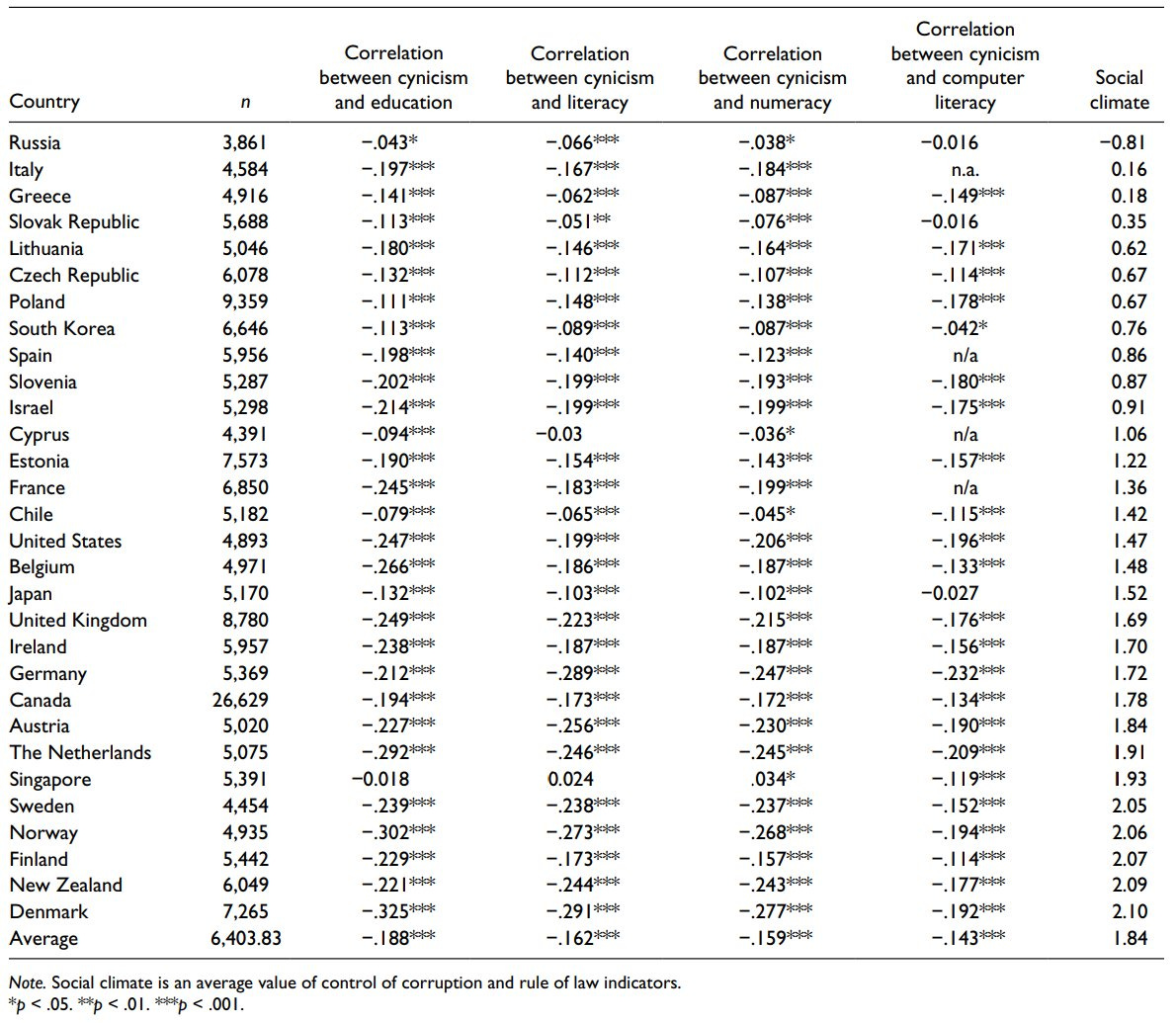The Long Game 157: Increasing Your VO2 Max, Couple Dynamics with Kids, Optimization, Rest
🏥 Apple Health Tips, Cynicism Masquerades as Wisdom, Marriage, Move Fast & Break Things, Blood Pressure, and Much More!
Hi there, it’s Mehdi Yacoubi, co-founder at Vital, and this is The Long Game Newsletter. To receive it in your inbox each week, subscribe here:
The Long Game is back after an extended time off — I’ll try to keep a ~weekly schedule from now on.
🇺🇸🗽 I’ll be in New York next week; let me know if you’re around and want to go for a coffee, a walk or a gym session (I’m planning to try a new gym every day, I want to see all the best gyms of nyc).
🥑 Health
🫀 How ‘Trainable’ Is VO2 Max Really?
Over the last 24 months, my VO2 Max went down significantly (if we can trust the Apple Health values). It’s not really surprising as during that time, cardio was really not my top focus.
Still, even if I’m not interested in endurance goals at the moment, it kind of annoyed me to see the downward trend for all these months.
This is a good article showing that VO2 Max is actually highly trainable:
I started working with a youngish, middle-of-the-pack athlete with some big goals. He had come from a history of rotating through a number of intensity-based programs and was frustrated at the plateau despite “working as hard as I could.” In more detail, the programs typically involved focused periods of 3-4 months before the key event, which would begin with high-intensity (threshold and “VO2”) trainer intervals and progressively extend to a few specific long rides/runs before the event. After the event, he would take a couple of months off/unstructured to mentally recover from the high-intensity training and then begin the cycle again. As a part of the initial assessment, we got the athlete into the lab for a full workup including a VO2 max test. The result? A fairly modest 53 ml/kg/min.
Again, knowing what we “know,” we might say to him (or at least be thinking), here is a guy who, as someone preparing for repeated Ironman triathlon events, is clearly not untrained. So, with a trained VO2 max of 53 ml/kg/min, his long-term goal of qualifying for the Ironman World Championship might be overly ambitious, at best. For comparative purposes, most male athletes in that age group who I have coached and who have achieved that level are closer to 65-70 ml/kg/min. Even at the low end, this would represent an improvement of 22% in VO2 max (from an already trained state)! Perhaps it was my duty to send this guy on his way? Or at the very least, let him know “not gonna happen, champ.” Well, fortunately, we didn’t take that route…
Over the course of the next three years, this athlete shifted his VO2 max from 53 to 74 ml/kg/min: An increase of 40% from a very middle-of-the-pack number to an elite level! And, in the process, he achieved his goal of qualifying for the Ironman World Championship.
I don’t know exactly what I’ll do to increase VO2 Max yet as I’m certainly not willing to put in the type of endurance training volume discussed in the article, but I know that I’ve had some success in the past with small bouts of HIIT. Another thing I’m thinking about is rucking instead of walking as this wouldn’t require a change of schedule/ training schedule.
I haven’t read it yet, but Brady consistently shares great information: VO2 Max Essentials eBook
🌱 Wellness
👨👩👧👧 Couple Dynamics with Kids
Men, this thread is worth a read:
Men are expected now to make way more money,but also be 50/50 raising kids & keeping up the house
Women are expected to keep a Instagram home & perfect kids (w/ no help),be 'active' at school, & make $ now
It's a crazy battle going on in the US
How we stay married w/ 4 kids:👇
Learned from a divorce lawyer recently... the largest cohort of women he's seeing file is married working moms who realize: "I'm taking care of the house, kid's schedules, etc & making money...why do I need this 'extra child' to keep track of"
It's effing sa
MEN:
This isn't the 1950's anymore.
Where you come home late from work after being at happy hour, sit in front of the TV, Mary Tyler Moore brings you dinner then she goes and puts kids to bed
The house is now 50/50. I clean the kitchen, bathe kids, sweep, do laundry at time
I do grocery shopping, bring kids to doctor appts, etc.
I'm no super Dad... it's legit what's now required
There's no community anymore where your neighbors are all watching each other's kids. Those days are over
Your wife can't watch them all day alon
Or --- if your wife works...
You can't "wait" for your wife to tell you what she needs help with. You need to figure it out yourself
Believe me, we've had dozens of arguments over this...and I never win
"Just tell me what to do" is passive aggressive wimpy stuff
If you see laundry hasn't been done in 2 weeks... it's not up to you to tell her "Hey, my laundry hasn't been done"
That's what 7-year olds do
You grab the basket, dump it in, squirt an undetermined amount of soap in & hit the dang button (it'll all be fine)
Another thing is about schedules, men.
You need to be hyper aware of the 'schedule freedoms' you have vs. her
I'm guilty of this too...
Coming home from work & going straight out to mow the lawn, then fix the car while she has to keep watching kids & then make dinner is bad
If you're able to leave the house on a whim, or go to your 'man cave' & play your video games...but she can't go to the bathroom/shower in peace w/o children... that's gonna come back at you
Tons of resentment will build up
Trust me --- I've been there. I'm helping you here
Next, the money is "EVERYONE'S" not yours. Money can cause so many problems
If you're hiding money from each other, it's going to boil over at some point, esp if one of you makes a lot more than the other
You one day blurt out "well, that's MY money. I earned it!"
oh boy...
Next, delegate crap
We hire people to do our yard work, fix cars, fix household stuff, etc.
We hire cleaners a few times per month
These keep you sane
You should not be spending 3 hours of your Saturday mowing the lawn. Spend it with the family.
Last, your spouse needs to come before kids.
You don't want to be divorcing at your kid's HS graduation
Your relationship sets your kids up for good relationships...plus, it's more fun when there's no resentment & you're a team
TLDR, men:
1. Men, the house is 50/50. The woman can't carry the mental load of anything. ESP if she works too
2. Be aware of each other's time 'freedoms'
3. Share money
4. Your wife comes before kids
5. Delegate as much as you can"But I work 10 hours per day, I deserve my rest time in the evenings"
Dude, if she has a job & having to manage kids (and you), that's a 16 hr job. Not fair
If she's not working, she's still doing 16 hrs of work at home or working on things outside the home (volunteering e.g.)
"You're a beta simp. I'm the man of the house"
Enjoy divorce court. There's a reason women file the majority of divorces
B/c men think they hold all the cards. You don't
You also don't want to
Build up resentment is a terrible way to live.
Resentment destroys more marriages than cheating
There will always be arguments over these things... but being aware of them help
Being married should be fun. You giggle about stuff. Still have great sex 10+ years in (+ after 10 yrs, you better know your wife's body well)
None of this is to bash men or talk down to them
I still struggle w/ these
It's lessons I've learned in 12 yrs of marriage, 4 kids, while running multiple biz (some together, which is a whole other topic)
Times are different.
Men need to step up more than before
Many won't.
Pair with: This is How Your Marriage Ends & How Not to Hate Your Husband After Kids.
🧠 Better Thinking
⚖️ The optimal level of optimization
This is an excellent article about a topic I’ve covered many times in the latest editions of the newsletter.
The main lesson we’ve learned is that you can almost never optimize directly for a goal—instead, you’re usually optimizing for something that looks like your goal but is slightly different. It’s a proxy.
Because you have to optimize for a proxy, when you optimize too much, you get too good at maximizing your proxy objective—which often takes you far away from your real goal.
So the point to keep in mind is: know what you’re optimizing for. Know that the proxy for the goal is not the goal itself. Hew loosely to your optimization process, and be ready to stop it or switch strategies when it seems like you’ve run out of useful similarity between your proxy objective and your actual goal.
As far as John Mayer, Dolly Parton, and Aristotle go on the wisdom of optimization, I think we have to hand the award to Aristotle and his golden mean.
When you’re optimizing for a goal, the optimal level of optimization is somewhere between too much and too little. It’s just right.
Pair with this tweet:
I enjoy experimenting with health optimization stuff as much as the next techy thinkboi…
But I do think an over-fixation on optimizing your HRV or any other tiny metric in your life is a sign that you lack some big compelling problem to go after.
The periods where I’ve felt the most lit up and alive are always when I’m not fixated on those little things and have something bigger I’m going after.
I think humans are natural problem seekers… and the size of the problem we’re trying to solve defines how energized we feel by our life.
… and none other than Tim Ferriss talking about un-optimizing… if this is not a sign of changing times, I don’t know what is!
⚡️ Startup Stuff
🏚 “Move fast and break things"
I found this to be a good commentary on the famous “move fast, break things” saying.
"Move fast and break things" is outdated advice for startups. Software ate the world—and there's more competition than ever. Our startup learned the hard way to ignore this advice, and this is what happened:
When you start a startup, so many people tell you to ship fast and ship messy. They tell you: you’ll know you have product market fit when people are willing to jump through hoops to use your broken product. This was great advice in 2013. But not in 2023.
When we started Jam, we first followed that advice. We got software into users’ hands our first week of being a company. But it wasn’t reliable software. And so people couldn’t use it. We were told: “That means you don’t have PMF. People will use a buggy app if you have PMF”
10 years ago, @reidhoffman said if you aren't embarrassed by your early product, you've launched too late. And that was what people kept telling us, and what we believed. So we kept launching and re-launching, each time fast and embarrassed. And it wasn't working.
Finally, we decided to try something new We took our time to squash bugs. We didn't let in users until we had quality. Then we re-opened the product. And something different happened. It started to grow. And in the year since, we grew through word of mouth from 1 -> 30K+ users
I’ve heard a version of this story from so many founders: “we had to fix 100 bugs to get to PMF”. And it makes sense:
When you’re an early stage startup, your job is to get clarity on what you’re building. When your product has bugs, it obscures your clarity. Bugs and lack of PMF both lead to low retention. So how can you tell: should we keep going or pivot? Impossible. You need clarity.
“Move fast and break things” and “you should be embarrassed by your product” was great startup advice 10 years ago. But not today. Even Sam Altman admits it:
It’s still important to ship fast to learn. But you won’t learn anything if your product is too buggy. The key is to cut product scope so much that you actually can ship something bug-free. Cut every non-essential feature. Ship fast, with small scope, high quality.
📚 What I Read
🧘♀️ Rest
The case for sabbaticals.
Picture a young Albert Einstein working as a patent clerk in 1905. He has a steady job, but his mind remains restless, filled with ideas that clash with the rigid conventions of physics. During the day, he mechanically processes patent applications. But away from the office, he plumbs the mysteries of the universe. This freedom allows bursts of imagination outside his daily routine. He asks, what would happen if you rode a beam of light? That year, he publishes four revolutionary papers that reshape science.
This is either the beginning of a tragedy or an incredible boon, depending on whom you ask. If you’re running the patent office, you might wonder why someone of such intellect would not be interested in improving the office itself, instead of imagining themselves riding alongside a photon. If you’re a scientist you might wonder how close we were to actually losing Einstein, if the patent office work was just a bit more time-consuming or difficult!
Today, it's nearly impossible for most professionals to enjoy such intellectual freedom. In the always-on economy, taking months or a year for unstructured exploration has become extinct. Two weeks of hurried vacation is the norm, if you're lucky. Sabbaticals are a quaint relic, reserved for tenured academics. Yet history reveals the immense value of this "long time.”
And we’re paying the price. Creativity has stagnated across industries. The few who escape enjoy epiphanies like Einstein in 1905. The always-on economy has robbed most professionals of this gift.
📉 World’s Lowest Birthrate Sinks Further Despite Cash Payouts to Parents
A sobering read, and likely what’s awaiting most developed countries.
Among advanced economies, South Korea is proving to be an outlier. Since 2013, the country of 52 million has reported the lowest fertility rate among wealthy members of the Organization for Economic Cooperation and Development—where the average fertility rate stands at 1.58. No other OECD member has a fertility rate below 1.
South Korea’s population began declining in 2020, with the number of deaths overtaking total births. Its military conscripts are expected to shrink by nearly half over the next two decades. The military has started to deploy more unmanned combat aircraft and increase the number of women serving. The country’s total student enrollment has shrunk for 18 years straight. Struggling colleges have been called “zombie universities” by local media due to dwindling student bodies.
The South Korean government has spent more than $210 billion since 2006 to entice young people to get married and have children.
But the efforts haven’t proven persuasive to people like Choi Sun-yoon, a 32-year-old office worker who got married last year. She doesn’t plan on having a child yet. Even though the government plans to increase the parental-leave period to 18 months, many working moms around Choi have been excluded from promotions or struggled to continue their jobs while raising their children, she said.
“I view the government subsidies as a positive step but still insufficient, because culturally women are still conscious of how raising a child will affect their career,” Choi said.
Pair with: Birthgap Documentary, this and this.
👫 Take a Wife … Please!
Why married people tend to be happier.
The chart comes from a recent paper by Sam Peltzman, an emeritus economics professor at the University of Chicago. For the study, which has not yet been peer-reviewed, Peltzman looked at the General Social Survey, which since 1972 has asked thousands of Americans, “Taken all together, how would you say things are these days—would you say that you are very happy, pretty happy, or not too happy?” If you imagine this large sample as 100 people, historically about 50 of those people say they’re “pretty happy,” and that’s still true. But in the 1970s, about 35 people would say they’re “very happy,” and 15 would say “not too happy.” That began to shift around 2000, and now about 32 people say they’re “very happy” and 18 say they’re “not too happy.”
To quote a Destiny’s Child song of that vintage, why the sudden change?
After slicing the demographic data every which way—income, education level, race, location, age, and gender—Peltzman found that this happiness dip is mainly attributable to one thing: Married people are happier, and Americans aren’t getting married as much. In 1980, 6 percent of 40-year-olds had never been married, but today, it’s 25 percent. “The recent decline in the married share of adults can explain (statistically) most of the recent decline in overall happiness,” he writes.
🗣 therapy as a way of aligning with your subconscious
An original look at therapy.
When I started seeing a therapist two and a half years ago, I wasn’t sure that therapy worked. I couldn’t imagine a therapist being smarter or more knowledgable about me than my best friends were, and I’d seen studies that suggested therapy’s impact on patients was unclear. I also knew a lot of people who’d been in talk therapy for years who seemed like they had major emotional problems that weren’t getting better.
I’ve seen four therapists over this period of time, partially because I’ve moved around a lot, and also partially because I was searching for the ideal therapy experience. It’s like pornography: I didn’t know exactly what I was searching for, but I was sure I’d recognize it when I found it. That might sound insane to you, but my strategy worked—I really like my current therapist. She’s by far my favorite, and I plan to keep seeing her until the day when she declares I have no more problems. The reason why I like her more than the others is that I emotionally connect to her—I feel safely attached, and also really trust her judgment. So if at all possible, I suggest that you find a therapist you deeply like and trust. However, I don’t think this is actually necessary for therapy to work, because the most important thing about therapy is that it helps you realize things everyone around you already sees. In short: it helps you consciously process subconscious signs.
🍭 Brain Food
📜 Cynicism Masquerades as Wisdom
A worldwide survey of 200k people finds cynical people are thought of as smarter but that, in reality, cynics test lower on cognitive & competency tests.
As Stephen Colbert said: “Cynicism masquerades as wisdom, but it is the furthest thing from it.”
The abstract:
Cynicism refers to a negative appraisal of human nature—a belief that self-interest is the ultimate motive guiding human behavior.
We explored laypersons’ beliefs about cynicism and competence and to what extent these beliefs correspond to reality.
Four studies showed that laypeople tend to believe in cynical individuals’ cognitive superiority. A further three studies based on the data of about 200,000 individuals from 30 countries debunked these lay beliefs as illusionary by revealing that cynical (vs. less cynical) individuals generally do worse on cognitive ability and academic competency tasks.
Cross-cultural analyses showed that competent individuals held contingent attitudes and endorsed cynicism only if it was warranted in a given sociocultural environment.
Less competent individuals embraced cynicism unconditionally, suggesting that—at low levels of competence—holding a cynical worldview might represent an adaptive default strategy to avoid the potential costs of falling prey to others’ cunning.
Here's a TL;DR:
In studies 1–3, participants indicated they thought cynics would do better on cognitive tasks.
In studies 4–5, cynics were tested and 1 SD of cynicism was associated with 0.25 and 0.17 SDs lower cognitive ability in studies 4 and 5, respectively.
In study 6, cynics were found to be - less educated in 29/30 countries - less literate in 28/30 countries - less numerate in 29/30 countries - less computer-literate in 23/26 countries
Cynicism is simply not smart.
🎥 What I’m Watching
🏥 Apple Health: 7 Secret Tips to Maximize Your Health
A great one from Shervin. I highly recommend his channel for everything related to health, health tracking & fitness.
💪 The Bros Were Right About Muscle Growth
There’s a lot of discussion on YouTube & TikTok between “science-based” training vs. “meathead” training these days. I think both approaches bring some important things to the table. This is a good video discussing this.
Pair with: The “Natural Limit” Doesn’t Exist
🔧 The Tool of the Week
📉 Blood Pressure Monitor
I’ve had on & off periods when it comes to health tracking over the last few months, but I’ve recently explored a bit the topic of blood pressure which I never thought about previously. I think it’s especially important for my lifting friends who are not afraid of extended bulking periods 😆
As you gain weight (fat or muscle) and become “big”, blood pressure tends to go up, so it can be smart to start monitoring it early enough to make sure it’s not too high.
If it is indeed too high there are many things you can do to lower it (cardio, less salt, etc.)
Lastly, it’s good to remember that high blood pressure is called the silent killer…
🪐 Quote I’m Pondering
Strength does not come from winning. Your struggles develop your strengths. When you go through hardships and decide not to surrender, that is strength.
— Arnold Schwarzenegger
👋 EndNote
Thanks for reading!
If you like The Long Game, please share it on social media or forward this email to someone who might enjoy it. You can also “like” this newsletter by clicking the ❤️ just below, which helps me get visibility on Substack.
Until next week,
Mehdi Yacoubi








I had the same problem, a notable decline in my VO2Max that worried me enough that I had myself tested on a treadmill. It showed my VO2 Max was just fine -- at least 20 points higher than Apple Watch. Have you seen any studies that demonstrates Apple's VO2 Max is accurate?
One thing to watch out for with Apple Health's VO2 Max estimate is that rucking will likely plummet your score. Your Apple Watch has no way to know you have extra weight on your back so it just assumes your higher heart rate for a walk/hike/run is because you're less fit. I'd recommend tracking rucks as something generic like "Mixed Cardio" as VO2 Max is only calculated by walking/hiking/running in Apple Health.